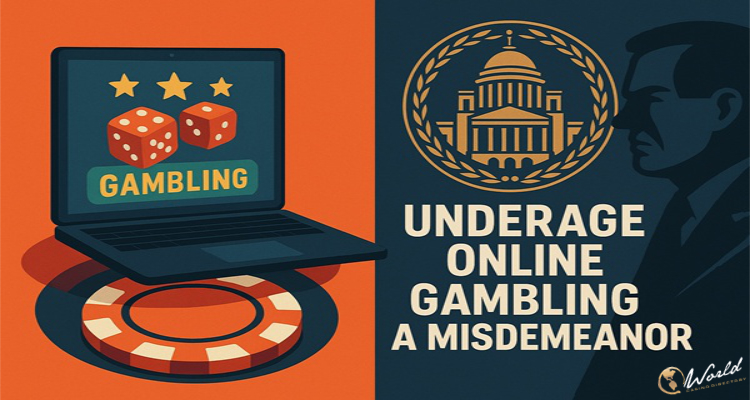A previously rejected proposal that would criminalize online gambling for individuals under the age of 21 in Rhode Island has unexpectedly resurfaced and advanced. One week after the House Judiciary Committee dismissed the bill in a 7-5 vote, it returned for reconsideration and passed with a 10-5 majority, sending it to the House floor.
House panel reconsiders and advances rejected iGaming bill:
According to the Rhode Island Current, the legislation, introduced by Rep. Gregory Costantino (D-Lincoln), seeks to penalize 18- to 20-year-olds who engage in iGaming, imposing a fine of up to $1,000 or a maximum prison sentence of one year. This initiative, backed by the Rhode Island State Police, aims to amend the state’s 2023 iGaming law, which currently restricts online gambling to individuals aged 21 and older.
Bally’s Corp., which operates Rhode Island’s only two casinos, also manages the state’s sole iGaming platform. When the state legalized online casino gaming last year, lawmakers raised concerns about protecting minors and young adults, particularly those in high school, leading to the higher age threshold.
The abrupt reversal on the bill’s fate followed a procedural move under House rules allowing reconsideration by a majority-side committee member while the bill remains in committee. This time, Rep. Jason Knight (D-Barrington), who initially voted against the bill, made the motion to revisit it.
“Although it’s unusual for a bill to go up and down then come back, it’s not unheard of,” Knight told Rhode Island Current following the vote. He later explained his vote flip, saying it aimed to craft legislation “that would make everyone happy.” Other members who reversed their positions included Rep. Julie Casimiro (D-North Kingstown) and Rep. Marie Hopkins (R-Warwick).
Chamber spokesman Larry Berman confirmed that such procedural reversals are rare but allowed. “Rule 12 … allows committee members to move for reconsideration of any vote taken as long as the bill … remains in possession of the committee,” he explained, noting that at least two members who missed the first vote wished to participate in the new decision.
Pushback grows over criminal penalties:
The renewed momentum behind the bill has met strong resistance from civil rights advocates and lawmakers concerned about fairness and proportionality. Megan Jackson, legislative liaison for the Public Defender’s Office, voiced concerns about the inconsistency in Rhode Island law, which permits in-person gambling for 18-year-olds yet proposes criminalizing their online activity.
“Rather than criminalizing digital gambling for individuals aged 18 to 20, we suggest considering alternative measures that focus on education and harm reduction,” Jackson testified in March. She proposed treating violations as civil infractions, similar to underage drinking or tobacco use, coupled with education on problem gambling.
Rep. Cherie Cruz (D-Pawtucket) echoed these concerns, stating that young adults could unknowingly break the law while gambling online—even from within a legal casino environment. “You could even be inside the casino and you’re violating the law,” she noted.
Cruz was joined in opposition by fellow Democrats Edith Ajello and Leonela Felix, as well as Republican Rep. David Place. Cruz argued for civil fines instead of criminal penalties, a sentiment the American Civil Liberties Union of Rhode Island has also supported.
However, Knight dismissed comparisons to other substances, stating, “We’re not talking about cannabis, alcohol or tobacco. We’re talking about gambling — it’s a different public policy question.”
Future uncertain as bill heads to House floor:
Despite the renewed committee approval, no date has been set for a full House vote. The companion bill in the Senate, introduced by Sen. Frank Ciccone (D-Providence), was reviewed by the Senate Committee on Gaming and Labor in March and remains under further study—a standard step for new proposals.
Committee Chairman Robert Craven (D-North Kingstown), who voted for the bill and presided over both hearings, said House rules do not allow full debate during reconsideration. While a Rhode Island State Police officer attended Tuesday’s meeting, no additional testimony was given.
Sgt. Ernest Adams of the State Police’s Gaming Enforcement Unit had previously testified in March, describing the bill as “essential” for upholding the age limit for online gambling.
The sudden return of the bill, posted for reconsideration on Friday, April 25—just before the funeral of Senate President Dominick Ruggerio—sparked procedural questions. Rep. Place cited Mason’s Rules of Order, which he claimed required reconsideration at the next meeting, not later. But Berman affirmed that House-specific rules supersede Mason’s unless otherwise silent.


